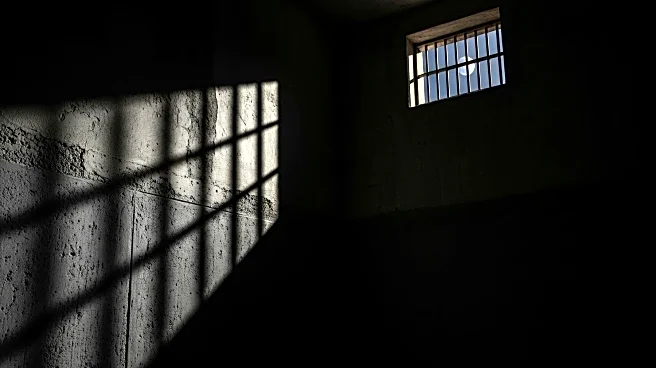What is the story about?
What's Happening?
CBS News has featured a segment where former prisoner Mutassim Abdulsatir provided a tour of Sednaya prison, notorious for its brutal conditions under the Assad regime. The prison, located in Syria, has been described as a 'house of horrors' where detainees were subjected to torture, beatings, and killings during Bashar al-Assad's rule. The segment, led by Margaret Brennan, aims to shed light on the human rights abuses that occurred within the facility, offering viewers a glimpse into the grim realities faced by prisoners. This coverage is part of CBS News' broader effort to document and report on international human rights violations.
Why It's Important?
The coverage of Sednaya prison by CBS News is significant as it brings attention to the human rights abuses perpetrated by the Assad regime. By highlighting the experiences of former prisoners like Mutassim Abdulsatir, the segment underscores the need for accountability and justice for victims of torture and other atrocities. This report contributes to the global discourse on human rights, potentially influencing international policy and advocacy efforts aimed at addressing such violations. It also serves as a reminder of the ongoing challenges in Syria, where political instability and conflict continue to impact civilian lives.
What's Next?
The exposure of Sednaya prison's conditions may prompt further investigations by international human rights organizations and could lead to increased pressure on the Assad regime to address past abuses. Advocacy groups might use this information to push for sanctions or legal actions against those responsible for the atrocities. Additionally, the segment could inspire other media outlets to explore similar stories, amplifying the call for justice and reform in regions affected by oppressive regimes.
Beyond the Headlines
The revelations about Sednaya prison highlight broader ethical and legal issues surrounding the treatment of prisoners and detainees in conflict zones. It raises questions about the role of international bodies in preventing such abuses and the effectiveness of existing human rights frameworks. The segment also touches on cultural dimensions, as it reflects the resilience and courage of individuals like Mutassim Abdulsatir who survived and are now speaking out against their oppressors.

















